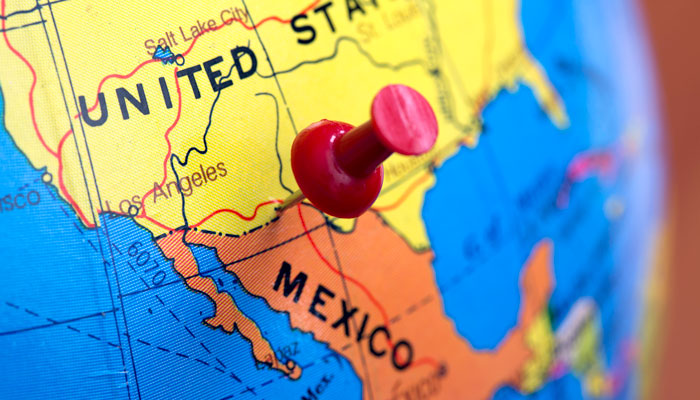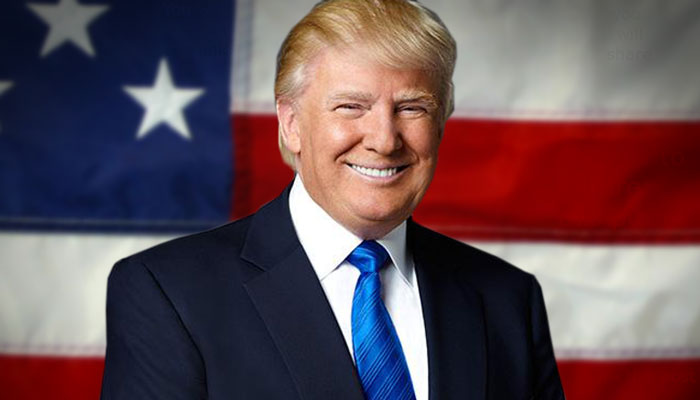President Trump will make a speech to the nation today at 1.00pm Australian Eastern Standard time, in which he will again make his case that there is an emergency at the US southern border and that a wall is necessary to resolve the crisis.

The speech will serve several political purposes. It will apply more pressure on Democrats to relent and pass appropriation bills to pay for the 234 miles (376 kms) of wall that Trump is demanding. It will also send a message to his own supporters that he is not about to cave in to pressure to abandon the wall that he has promised them. And it may herald an announcement that the President will use emergency powers to unilaterally take monies earmarked for other purposes and use them to fund the wall and resolve the partial government closure.
The 'partial' government shutdown that began on 21 December is now in its third week. Should it continue into this weekend, it would become the longest government shutdown in US history, surpassing those of 1995 (21 days) and 2013 (16 days).(This is a partial shutdown because only around a quarter of the government is shut down, which includes nine agencies. The other agencies still operating still have monies previously appropriated to continue their functioning.)
In both of those cases Republican Congressional leaders sought to deny Democratic President’s (Bill Clinton and Barack Obama) their preferences, and were roundly condemned in the court of public opinion. Congress lost and the Presidents won.
Far-reaching consequences now being felt
But this time, the political atmosphere is very different. Donald Trump has publicly owned the partial government shutdown, and suggested that he would be happy to see it continue for months or even years. Recent opinion polls confirm that a clear majority of American’s view the President rather than Congress as being responsible for the shutdown.
This high stakes game of political brinkmanship is therefore likely to continue long after Trump addresses his supporters today.
The consequences are now beginning to bite. 800,000 federal government workers have been furloughed or are working without pay; National Parks and museums are closed or are about to be; Immigration courts are not processing claims; and some essential welfare services are being cut. There is a simmering resentment amongst unpaid federal workers and their families, and many moderate Republicans in Congress are increasingly uncomfortable with the shutdown.
The President, however, is unperturbed, and is going on national TV to again make his case. The address will be to the nation, but the key audience will be Trump’s own base. The wall is a key symbolic issue for them, and a test of the President’s resolve. Some far right media figures, including right-wing pundit Anne Coulter, have recently questioned the President’s resolve and demanded that he hold out, no matter what the cost.
A metaphor for political survival
This explains why the President has invoked the possibility of using emergency powers to resolve the situation, and why they are being invoked now.
The National emergency Act of 1976 allows for the Commander in Chief to requisition monies appropriated for other purposes to set the military to work on construction projects in periods of national emergency. Trump and his supporters claim that the US’s southern border constitutes precisely such an emergency. He has claimed in recent times that the US is being invaded from the south, that criminals and drugs are streaming into the US, and that 4,000 “terrorists” had been arrested at the border.
None of this is true. The numbers of people attempting to enter the US from Mexico was less over the past year than it had been in previous years, and many of the entrants were children; US government agency statistics suggest that crime rates among immigrants and asylum seekers are lower than for native born Americans; and the figure of 4,000 “terrorists” was recently exposed as a fabrication in an NBC report, with the actual number being just six!
The supposed emergency has, then, been confected for political purposes, and any unilateral action by Trump to build the wall will surely face formidable legal obstacles to its realization.
But none of this matters to Trump and his embittered followers. For them, the wall is non-negotiable and a metaphor for their own preservation and their political champion’s resolve. This high stakes game of political brinkmanship is therefore likely to continue long after Trump addresses his supporters today.



